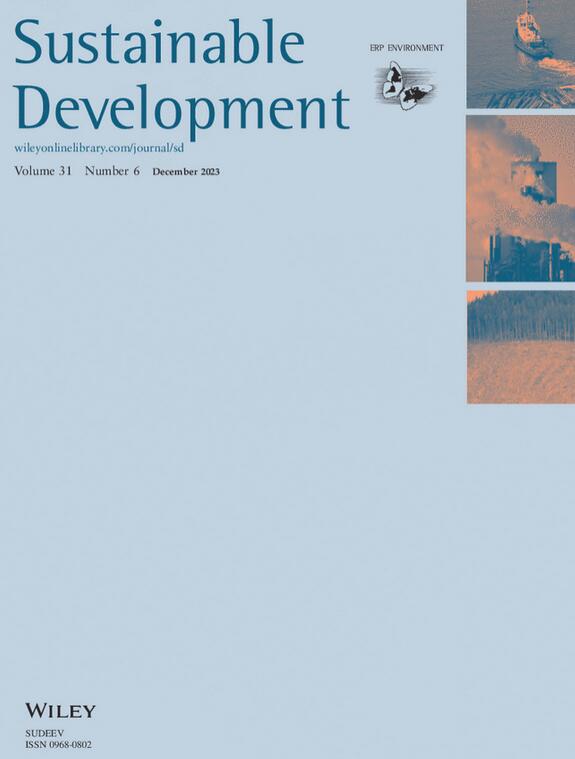中国在非洲的外国直接投资对环境的影响:来自集合平均值组的证据
IF 9.9
1区 环境科学与生态学
Q1 DEVELOPMENT STUDIES
引用次数: 0
摘要
中非经济关系的发展备受学者关注。非洲和中国在外国直接投资、跨境贸易和对外援助等领域开展了合作。虽然这种经济关系被认为有助于非洲国家的发展,但也有学者认为这是帝国主义的新做法。令人惊讶的是,这些学者都没有研究过中国在非洲地区的外国直接投资(CFDI)对环境的影响。有鉴于此,本研究探讨了中国对外直接投资(CFDI)如何改变了撒哈拉以南非洲(SSA)的环境状况。本研究采用集合均值组面板估计程序,在不存在横截面依赖性的情况下,对 2003-2020 年期间的短期异质性和长期同质性进行控制,重点研究该地区 22 个来自中国的外商投资大幅增长的国家。从长期来看,中国直接外资减少了二氧化碳排放量,从而证明了污染光环假说。此外,短期平均值显示,外商直接投资增加了二氧化碳排放量,使污染天堂假说成立。然而,短期结果显示,外国直接投资对二氧化碳排放的影响存在很大差异。研究表明,在布隆迪和卢旺达,短期外国直接投资与二氧化碳排放量的减少有关,但在刚果共和国、加蓬和南非,短期外国直接投资却增加了二氧化碳排放量。根据研究结果提出了一些政策建议。本文章由计算机程序翻译,如有差异,请以英文原文为准。
Environmental effect of Chinese FDI in Africa: Evidence from pooled mean group
The growth of the China‐African economic relationship has received much attention among the scholars. Africa and China have experienced cooperation in the areas of foreign direct investment, cross‐border trade, and foreign aids. While this economic relationship has been viewed to contribute to the development of African nations, some scholars are of the opinion that it is a new practice in imperialism. Surprisingly, none of these scholars has examined the environmental effect of Chinese foreign direct investment (CFDI) in African regions. On this note, this study investigates how Chinese foreign direct investment (CFDI) has altered environmental conditions in sub‐Saharan Africa (SSA). The study uses the pooled mean group panel estimation procedure to control for short‐run heterogeneity and long‐run homogeneity in the absence of cross‐sectional dependence for the period 2003–2020, focusing on 22 countries in the region that have seen a substantial increase in foreign investment from China. CFDI is shown to decrease CO2 emissions in the long term, lending credence to the pollution halo hypothesis. Furthermore, short‐term averages show that CFDI increases CO2 emissions, lending credence to the pollution haven hypothesis. However, the short‐term results showed substantial variation on how CFDI affects CO2 emissions. The research shows that short‐term CFDI is associated with reduction in CO2 emissions in Burundi and Rwanda but increases them in the Congo Republic, Gabon, and South Africa. Some policy suggestions based on the results are offered.
求助全文
通过发布文献求助,成功后即可免费获取论文全文。
去求助
来源期刊

Sustainable Development
Multiple-
CiteScore
17.30
自引率
11.20%
发文量
168
期刊介绍:
Sustainable Development is a publication that takes an interdisciplinary approach to explore and propose strategies for achieving sustainable development. Our aim is to discuss and address the challenges associated with sustainable development and the Sustainable Development Goals. All submissions are subjected to a thorough review process to ensure that our readers receive valuable and original content of the highest caliber.
 求助内容:
求助内容: 应助结果提醒方式:
应助结果提醒方式:


